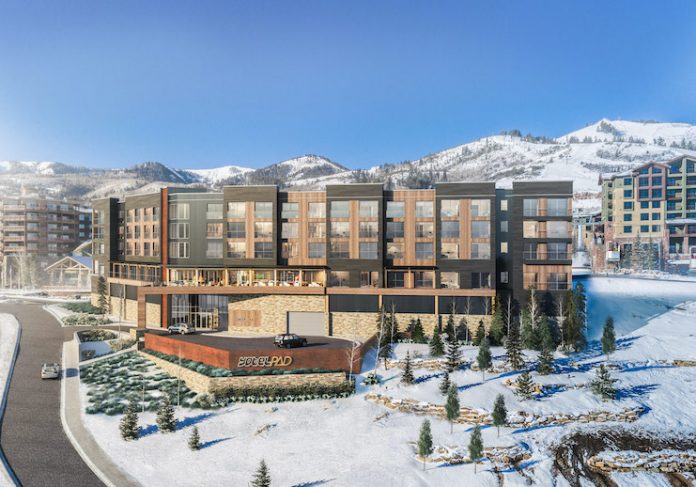At this year’s NYU International Hospitality Industry Investment Conference, LODGING connected with YOTEL’s Hubert Viriot, CEO, and Rohan Thakkar, senior vice president of development and technical services, on their recent opening efforts, market targets, and how they are evolving the guest experience.
YOTEL has been expanding rapidly; what is the strategy driving this growth?
Viriot: We are about 10 years old, but the company started growing five or six years ago a bit more rapidly. We started in Times Square and from there we built a lot of our projects. What has played a big role in our growth is that we decided from the company’s inception that our goals and our brand have the potential to go global. We’ve embraced our international group from the beginning, and the key markets around the world make the most sense for our product. These markets have a very efficient design in real estate, so we were able to turn hotels into sustainable investments.
Are you looking to grow more in gateway cities? What are you working on now?
Viriot: Absolutely. The next big news right now for us is Miami where we’re putting a mixed-use project hotel. We have another project in New York and one in Atlanta. There are so many cities we want to be in because there is space. We have been repurposing office buildings and converting those into hotels. And we recently picked up a property in Manchester, U.K., too, which is really exciting.
The Manchester property was a conversion from another hotel—what was that process like?
Viriot: It was definitely a transition, but we embraced it proactively. We identified the uniqueness of the hotel design and realized there were opportunities to convert an inefficient building into a better use. Since COVID hit, everyone now talks about conversion; we got started at a good time.
Thakkar: When the public space for a project is quite flexible, that makes the conversion easier. The space in Manchester, for example, was ideal for YOTEL because it allowed that flexibility.
With the recovery underway, flexibility is key. How do you plan to remain nimble in the future?
Viriot: We talk a lot about design flexibility. You need to lead with flexibility and be able to give that to your guests. It’s a very big switch for our industry to move away from non-flexible rates, difficult cancellation policies, etc. The ability to change bookings at the very last minute and efficient check-ins and check-outs give a more tailored guest experience. It’s important for our brand to deliver an experience that’s all about designing a hotel and operating it in the most efficient way possible.
Throughout the pandemic, we saw the extended-stay segment thrive. Would you like to talk about how YOTELPAD fits into that mold?
Thakkar: Yes. We have two YOTELPADs—both in the United States—one in Park City, Utah, and one in Miami. We have our first opening in Europe in two years in Brussels, Germany. YOTELPAD has the same DNA as YOTEL but taken into the extended-stay market; this was pre-COVID. The idea came several years ago knowing that would be the next stage for our growth—airports, city centers, and then extended stay.
So, YOTELPAD can be in city centers, but it also gives us the flexibility to grow into other locations, too. When we have a YOTEL and YOTELPAD in the same city, we can use the same facilities and amenities to have both types of brands in the same property. The average room size of a YOTELPAD is still smaller than your typical extended stay in the United States, but same as for YOTEL, they’re well-designed and efficient. It’s certainly just as much of a focus as YOTEL.
As you’re focused on both brands similarly, what is your growth strategy going into 2022?
Thakkar: It’ll likely be into city center locations. It may also be key locations and resort destinations like Park City and even business parks. I don’t think at this stage we’ll go into secondary or tertiary locations like some of the legacy brands, but we could go into New York, for example—just not some of the secondary locations.











